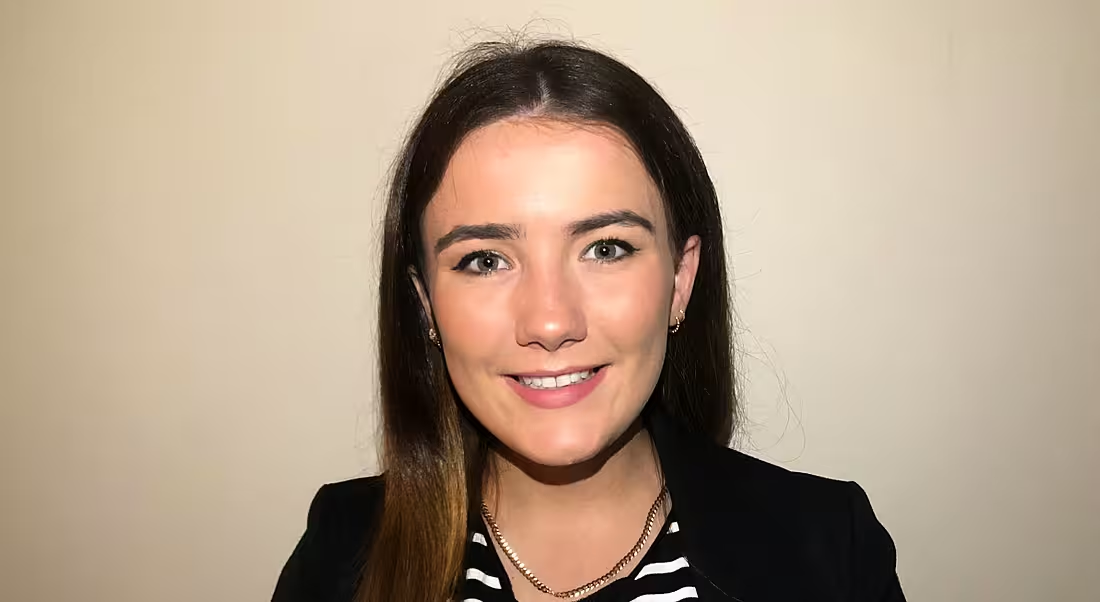Eimear Quinn studied nursing, but made a career pivot into tech and now works as a graduate mentor. Here, she shares her biggest learnings.
While plenty of major firms and large multinationals have graduate programmes, there are also opportunities at Ireland’s start-ups for people looking to get into tech.
Wayflyer is a revenue-based financing and growth platform for e-commerce companies that was founded in 2019 and reached a unicorn valuation of $1.6bn earlier this year.
Eimear Quinn joined the company as a graduate just over a year ago and now works in its customer success team.
Quinn first studied nursing in Dublin City University and worked as a nurse during the pandemic. “Nursing is a wonderful profession. I thoroughly enjoyed speaking with patients and their families. However, I realised it was not my personal vocation and decided to look into other career paths,” she told SiliconRepublic.com.
“I chose to study for a master’s in business management to gain a good understanding of basic economic principles. I started to see how start-up businesses within tech are the hub of new opportunities.”
However, when she started applying for roles after her master’s degree, Quinn said she struggled to get interviews. “Despite most roles being graduate or entry-level positions, I wasn’t offered many or failed to progress to final-stage interviews!”
She then joined a four-week programme with Gradguide, an online career guidance, mentorship and recruitment platform, and started getting job offers.
As part of Wayflyer’s customer success team, Quinn said her days are now spent “building meaningful relationships with customers”.
“We monitor their performance to be able to offer timely support. The day focuses on managing pipeline as well as collaborating with other teams as we expand our product offering and our customer base grows internationally.”
Advice for future graduates
As well as her job at Wayflyer, Quinn now works as a mentor at Gradguide. “It’s incredibly rewarding and has allowed me to have some extremely meaningful conversations focused on driving someone else’s career growth,” she said.
“I encourage mentees to upskill and set aside time to focus on personal development, ensuring they are armed with the latest information on industry trends to discuss in interviews.”
Because Quinn came from a nursing background, she didn’t have a wide circle of friends working in tech when she was starting out. “Now, I can leverage my own network to help others with referrals and support their interview process in some of the world’s fastest-growing tech companies,” she said.
“Seeing mentees land jobs in their dream roles and excel over the last few months has been beyond fulfilling.”
For graduates interested in a career in tech, or for those who are thinking of making a career change, Quinn said “you need to be comfortable thriving in chaos”.
“Process changes can be implemented overnight and it is fast-paced. Understanding the importance of a work-life balance from the beginning of your new career cannot be underestimated and will help you to build resilience if you end up in a target-driven environment.”
For more general advice with her mentor hat on, Quinn said graduates should start building their personal brand as early as possible.
“Your CV will showcase your experience. Having a personal brand built from your own values will help you to stand out amongst the sea of other students. It will help you to market yourself in interviews.”
She also said it’s important to keep options open and not to settle. “Apply for every role that piques your interest. Don’t allow the ‘three-plus years’ experience required’ to hold you back,” she added.
“A transferrable skillset is often as valuable as a degree in any given subject. Take advantage of the current hiring market and ask every question that springs to mind.”
10 things you need to know direct to your inbox every weekday. Sign up for the Daily Brief, Silicon Republic’s digest of essential sci-tech news.




